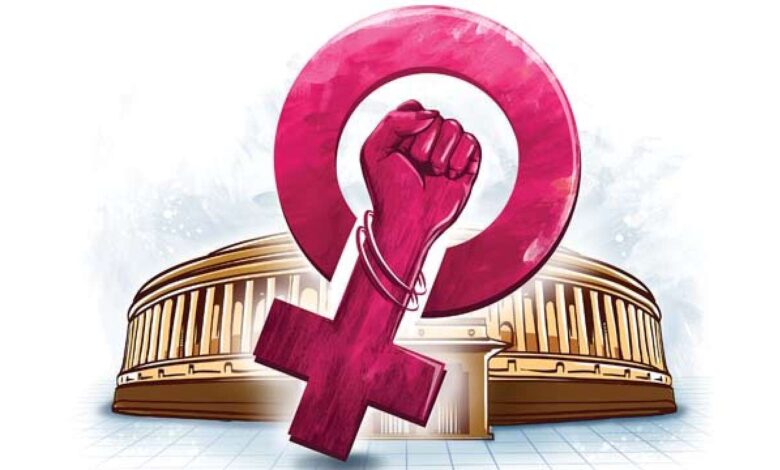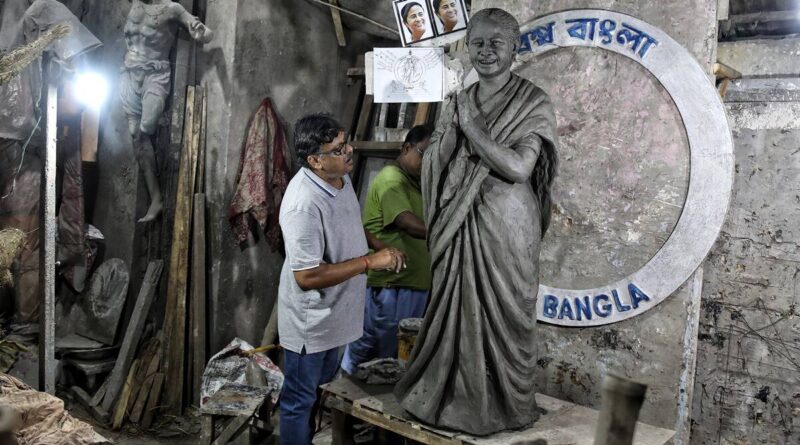
Moblienews24x7 Bureau
Although the Women’s Reservation Bill passed has been viewed as a landmark phase for India, but it has as well raised a few political points by observers.
There is hardly any space for skullduggery and so it was a positive step regardless of the timing of tabling it and the amount of euphoria sparked at the same time.
These are not fictional claims, for many have devolved political power to women, though insufficient.
A long history
The Congress passed the 73 and 74 Amendment Bills and many parties across states increased reservations in local governments from 33 percent to 50 percent. Further, the Janata Dal, Bharatiya Janata Party (BJP), and the INC have tabled the Women’s Reservation Bill in its prior avatars.
Except for the Trinamool Congress (TMC), the Biju Janata Dal (BJD) and the Janata Dal United (JDU), who have fielded a critical mass of female candidates in multiple election. But in the case of rest there has not been a iron hand deal to the aspect.
It no can well be placed on record that no political party in India is gender-balanced in the bottom layers of its party hierarchy. They have not structured a format of female leaders but rather field women adhoc for the heck of it, per want of their party chiefs.
Undisputedly, we cannot hold the pat back due to women for forcing the bill allowing 33 percent reservation for women in the Lok Sabha, and the state Assemblies, should go to them who have bridged that persistent 10 percent point gap versus male polls percentages since 2009, levelling in 2019.
Will it help 2024?
Coming straight to the ensuing 2024 elections are around the corner even as the Bharatiya Janata Dal (BJP) is staring at misgovernance. Manipur continues to ravage its women; a flaccid economy lost them the women of Karnataka; Telangana and Rajasthan polls look ominous for the BJP; and the Opposition has united formidably, with the wind beneath INDIA’s wings.
Popularity, propaganda and personal popularity apart, ground sentiment is less than savory and this has put the fear of the voter in the ruling party.
The BJP needed a campaign to stem the stench. And that is manifold, stretching from price to Manipur mishandling and several other things which came as an aching heel for the rulers.
One that can be packaged glamorously, earn credit with significant sections of voters, gain the nod of the core and cadre, and put the opposition on the back-foot.
Nothing much different in this and it is just like the earlier 108th Amendment, reserves 33 percent seats for women in national and state legislatures on a rotational basis, and ensures the same within the SC/ST quota.
There is further mischief in the Bill – a 15-year sunset.Why is that confusion this time. So sloganeering there comes into play. Nari Shakti Abhiyan.
The charitable interpretation would be shoddy drafting; in the worst case, the Nari Shakti Vandan Adhiniyam is the ultimate Disappearing Act.
Deep rooted inequalities
Let’s see from the Constitutional quota for people from the SC/ST communities, with the year sunset clause, has proved beyond any doubt that even 75 years are too short to raze deeply entrenched inequities.
Reasonable grandfathering should set a threshold for women’s political agency, not an arbitrary duration of 15 years.
Power to women or vote
Deep scrutiny reveal a sense that , the bill turns initial jubilation into disbelief. The simplest explanation is that the objective of the bill is not women’s political power but the women’s vote, achieved without alienating the BJP base.
The BJP/Rashtriya Swayamsewak Sangh (RSS) base has an aversion to reservation. Many of its leaders have stated so publicly in the past, and not just for women’s reservation, but the concept in general.
Frankly speaking the Bill is sure to disgruntle not just the cadre but their party leaders and elected male representatives who could lose their seats and may defect.






